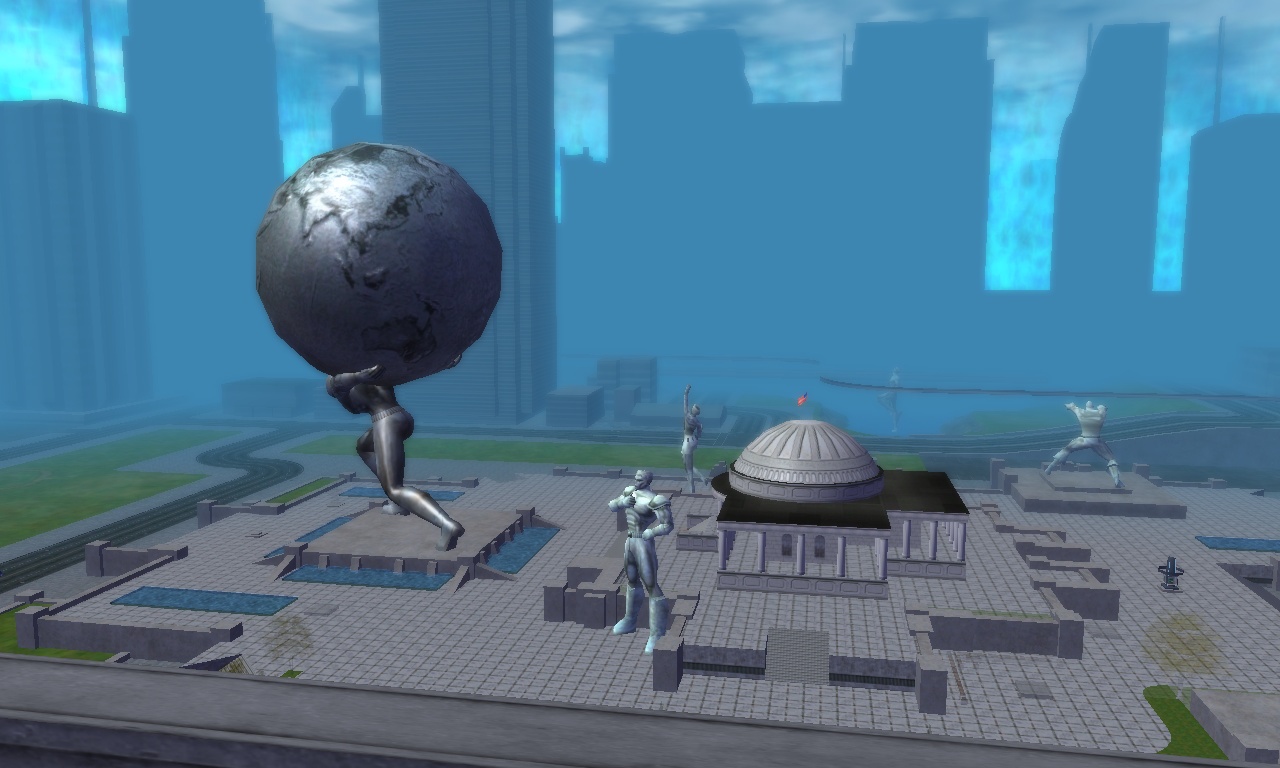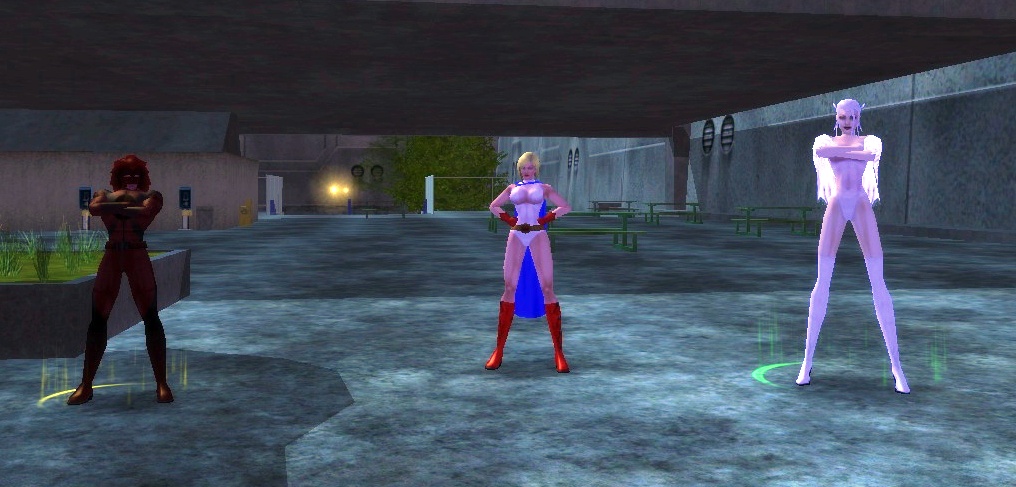An Open Letter to MMO Developers
– by David Matthews 2
This is an open request to Massive Multimedia Online Role-Playing Game developers and their corporate managers:
Stop trying to kill World of Warcraft!
That may sound a little confusing, so bear with me while I clarify.
I keep hearing the phrase “WOW-Killer” from reviewers and developers as though the purpose of any MMO program is to utterly destroy World of Warcraft (aka “WOW”). I know it’s more of a competitive mindset and a somewhat lofty goal to be able to knock the biggest name in MMORPG off its pedestal. But if that is truly your goal, then in all likelihood you will fail at it.
Is it impossible to defeat the Elite Boss of MMOs? No. Warcraft can be beat. But it’s not going to be beat by a company that is fixated on just doing that.
The MMO market is in a bit of a transition right now. The old subscription-based model worked when the economy was capable of keeping people employed with a steady income. But those days are over with and the Great Recession really stripped a lot of income away from the very users that would otherwise be paying for a regular subscription. Today the trend is the hybrid of subscription along with free-to-play and pay-for-features. Free-to-play gets the users to start playing the game, and to allow normal subscribers to keep playing the game should the economy force them to drop their subscription for a limited time. And pay-for-features allows MMO developers to figure out which features are really popular with the user-base.
So that’s really what the MMO developers and their corporate managers need to focus on first and foremost: survival. You’re not going to be able to beat Warcraft if you’re not still standing after they fall.
Another thing that self-professed “WOW-Killer” companies fail to do is they fail to advertise that their MMO even exists.
I’ve never played World of Warcraft, but I can tell you that their latest expansion is called “Mists of Panderia”. How do I know this? Because Blizzard Entertainment spends big money into letting people know about it. It’s on the TV and in magazines. You go to your local big-box superstore and you’ll find it displayed in their electronics section. In fact, you’ll probably find it easier than you would the latest Microsoft operating system or the newest anti-virus security suite.
Yes, Blizzard Entertainment spends the money for Vern Troyer and Mr. T and William Shatner to talk about the joy of being gamers. T can even brag about his “Mohawk Grenade” and claiming to know something about being a programmer. It’s funny. But the question to those other companies that claim to want to beat Warcraft is this: where’s your TV spot? Oh, and “YouTube” is not an acceptable answer.
You want to beat Warcraft? There is the venue that you’ll need to play in to do it. If you’re not willing to pony up the money for that kind of advertising, then don’t even start trying to claim to be able to compete with them, much less beat them.
Then there’s this: how can you “beat” Warcraft if your MMO is just like it?
Take a look at your MMO. Can you describe it without you making any comparisons to Warcraft? If the person you’re describing this to responds with “So it’s like Warcraft but…”, then you’ve failed.
“It’s a fantasy world of swords and sorcery where you develop your skills and relationships through team activities.” Sorry, but that’s Warcraft.
“It’s a fantasy galaxy of lasers and blast-cannons where you advance in rank and create your army through team activities.” Sorry, but that’s Warcraft in space.
“It’s a fantasy city of capes and cowls, where heroes develop their powers and organize into super-legions with other heroes.” Sorry, but that’s Warcraft with capes.
Take a look at Star Wars: The Old Republic MMO. One MMO reviewer came to the realization that the whole player interface was pretty much ripped off from Warcraft. In fact, he even showed the screens of the two games and showed how SWTOR mirrored Warcraft’s activities.
I’m going to go on a limb and make a prediction here: the MMO that replaces Warcraft on the top of the heap will be something that is so different that people won’t make comparisons to Warcraft.
The last way that you can beat World of Warcraft is this: by not continually competing against it.
The now-defunct City of Heroes MMO earned a huge support base because the developers didn’t try to compete against Warcraft. Rather, the developers at Paragon Studios worked to make their MMO to be the best possible in the superhero genre, so when all other superhero MMOs came out, from Champions Online to DC Universe Online to the future Marvel MMOs, those MMOs were compared to City of Heroes instead of Warcraft. The MMO was bringing in over two million dollars a year in steady income with almost no advertising whatsoever. That’s all from the steady user-base. And when NCSoft made the mistake of shutting that game down, the whole MMO world knew about it, and even their competition showed their respect and appreciation for the game.
And, really, the biggest threat for World of Warcraft is not the competition, but rather it is the corporate hands that feed them. Paragon Studios and City of Heroes found out about that all-too-well with their own parent company, and, one day, the people behind World of Warcraft will realize it with Blizzard.
Maybe there’s a new MMO that people are flocking to. Maybe the gold-farming spammers have overwhelmed the servers. Maybe there’s a team of game griefers that make the experience too troubling for the others. Maybe the developers make the mistake of not listening to the users and come up with things that nobody wants to pay for. Maybe Blizzard has another MMO that they want to re-focus their corporate love. Maybe the Blizzard bean-counters will simply declare the game unsustainable. Whatever the reason, at some point the Blizzard execs will make the inevitable decision to shut down World of Warcraft, and then whichever MMOs are still around will be able to compete for the title of “King of the MMO Mountain”.
So the name of the game for MMO developers that really want to beat World of Warcraft is this: don’t try to be like Warcraft. Be your own MMO. Support and promote it. Earn the respect and support of your user-base by making it the best in its own genre. And when Warcraft does itself in, you’ll be in position to be the new measuring stick.
David Matthews 2 is a freelance writer living in Georgia. He has been around computers in one form or another since the 1980’s.
This article may be distributed freely only so long as it is reprinted in its entirety, with all proper credit given to the author.
2012 – Get Brutal Productions









